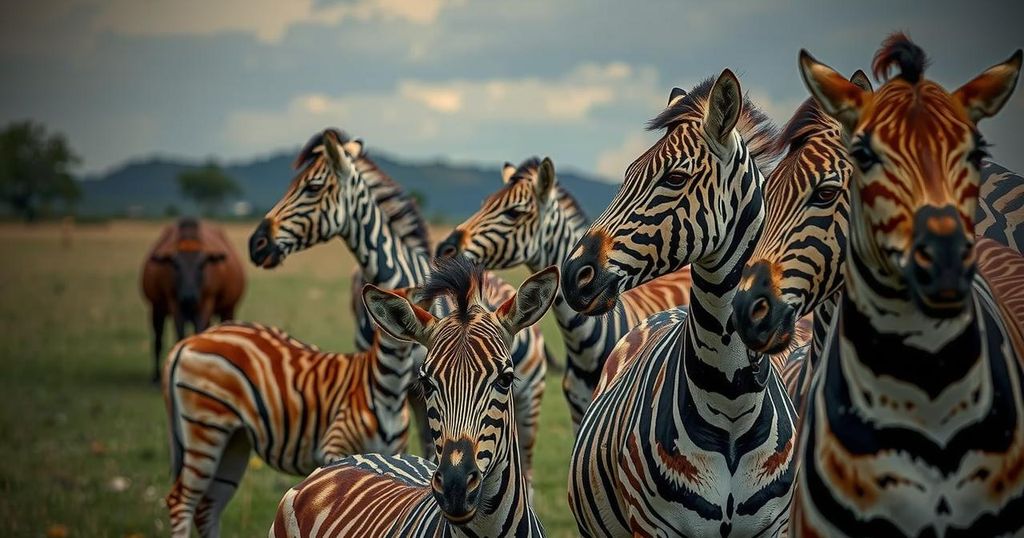A coalition of animal protection and conservation groups condemns Namibia and Zimbabwe’s plans to cull elephants and other wildlife due to a severe drought, claiming it threatens biodiversity and human-wildlife relations. Experts advocate for sustainable alternatives to address food insecurity without resorting to mass killings. They urge both governments to focus on humane solutions and call on international aid agencies to support these efforts rather than promote culling.
A coalition of animal protection and conservation organizations is vehemently opposing recent culling announcements made by several African nations, including Namibia and Zimbabwe. The groups, comprising World Animal News, Peace 4 Animals, Born Free USA, and the Born Free Foundation, are alarmed by these measures which threaten the survival of elephants and other species. Namibia has announced plans to slaughter over 1,000 wild animals, while Zimbabwe intends to kill at least 200 elephants, actions purportedly aimed at supporting drought-stricken communities. These planned culls are framed by governments as efforts to provide meat for vulnerable populations and alleviate human-wildlife conflict, but they conceal the far-reaching ecological repercussions of such actions. The organizations assert that culling does not sustainably address food security and may promote illegal wildlife trade. Furthermore, these actions could lead to increased tension between humans and wildlife, exacerbating the conflicts that they are supposedly intended to mitigate. The culling of elephants raises concerns about illegal ivory trade, as stockpiling tusks may encourage the relaxation of international bans against ivory. Namibia and Zimbabwe have a history of attempting to overturn such bans, which could lead to a surge in poaching and threaten the already endangered populations of elephants. Moreover, the tourism industry in Zimbabwe, which significantly relies on healthy wildlife populations, stands to suffer immensely due to these culling efforts. Despite the severe drought currently impacting the region, experts advocate for sustainable solutions such as providing staple grains to ensure food security and the implementation of effective land governance. These alternatives would foster long-term coexistence of humans and wildlife without resorting to mass killings. The coalition urges the concerned governments to abandon their culling initiatives and redirect resources towards these proven humane techniques. Furthermore, they call upon international donors to ensure that aid is contingent upon the adoption of measures that balance human needs with wildlife conservation.
The recent culling plans by Namibia and Zimbabwe stem from a severe drought affecting the region, which has prompted both governments to consider drastic measures to address food insecurity and land pressures. However, the ecological ramifications of culling large wildlife populations, particularly elephants, raise alarming concerns about the preservation of endangered species and biodiversity. Various conservation groups are advocating for alternative solutions that emphasize sustainable agricultural practices and human-wildlife coexistence rather than lethal measures against wildlife.
In summary, the coalition of animal protection and conservation organizations firmly opposes the proposed culling of wildlife in Namibia and Zimbabwe. They argue that this approach is neither sustainable nor ethical and will have detrimental effects on both endangered species and local ecosystems. Instead, alternative measures must be urgently adopted to ensure food security and promote coexistence between humans and wildlife, preserving the integrity of critical ecosystems for future generations.
Original Source: www.zawya.com






